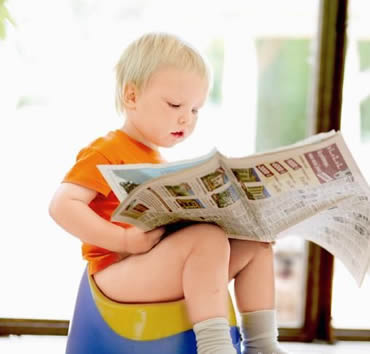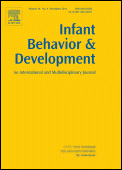
婴儿通常会模仿成人讲话发音,模仿成人的面部表情和动作,但面对做鬼脸或者逗乐型的成年人,婴儿最多一笑了之,鲜有模仿。加拿大一项研究发现,婴儿虽小,却从小就懂得有选择性学习。
由加拿大研究者刊登在最新一期《婴儿行为与发育》杂志上的文章认为,婴儿从“非常幼年”开始就具备区分可信任和不可信任学习对象。
“与大一点的儿童一样,婴儿们可以区别成年人行为是否可信,进而指导自己是否学习这些成年人的行为。”法新社6日援引加拿大心理学研究者戴安·波林-杜波依斯教授的研究文章报道。
研究人员邀请两组13个月至16个月大的婴儿参加一项相应测验。测验中,研究员做出惊喜的表情,假装在一个容器内看到了好玩的东西。打开容器后,一组婴儿看到的是玩具,另一组婴儿看到的是空空如也的容器。
而后,同一批研究员用前额、而不是用手打开一盏灯的开关,测试婴儿是否会模拟自己的动作。
结果发现,第一组婴儿因为确实在容器内发现了惊喜,模仿研究员用前额撞开开关的比例达61%;而后一组婴儿因为曾经被这个研究员戏耍欺骗过,模仿概率只有34%。
波林-杜波依斯说,这一试验表明,婴儿有选择性学习相当明显,“特别是,婴儿通常不会选择学习那些他们认为不可信任的人”。

 Infants prefer to imitate a reliable person
Infants prefer to imitate a reliable person
Diane Poulin-Dubois, Ivy Brooker, Alexandra Polonia
Research has shown that preschoolers prefer to learn from individuals who are a reliable source of information. The current study examined whether the past reliability of a person's emotional signals influences infants’ willingness to imitate that person. An emotional referencing task was first administered to infants in order to demonstrate the experimenter's credibility or lack thereof. Next, infants in both conditions watched as the same experimenter turned on a touch light using her forehead. Infants were then given the opportunity to reproduce this novel action. As expected, infants in the unreliable condition developed the expectation that the person's emotional cues were misleading. Thus, these infants were subsequently more likely to use their hands than their foreheads when attempting to turn on the light. In contrast, infants in the reliable group were more likely to imitate the experimenter's action using their foreheads. These results suggest that the reliability of the model influences infants’ imitation.
文献链接:https://www.sciencedirect.com/science/article/pii/S0163638311000221







